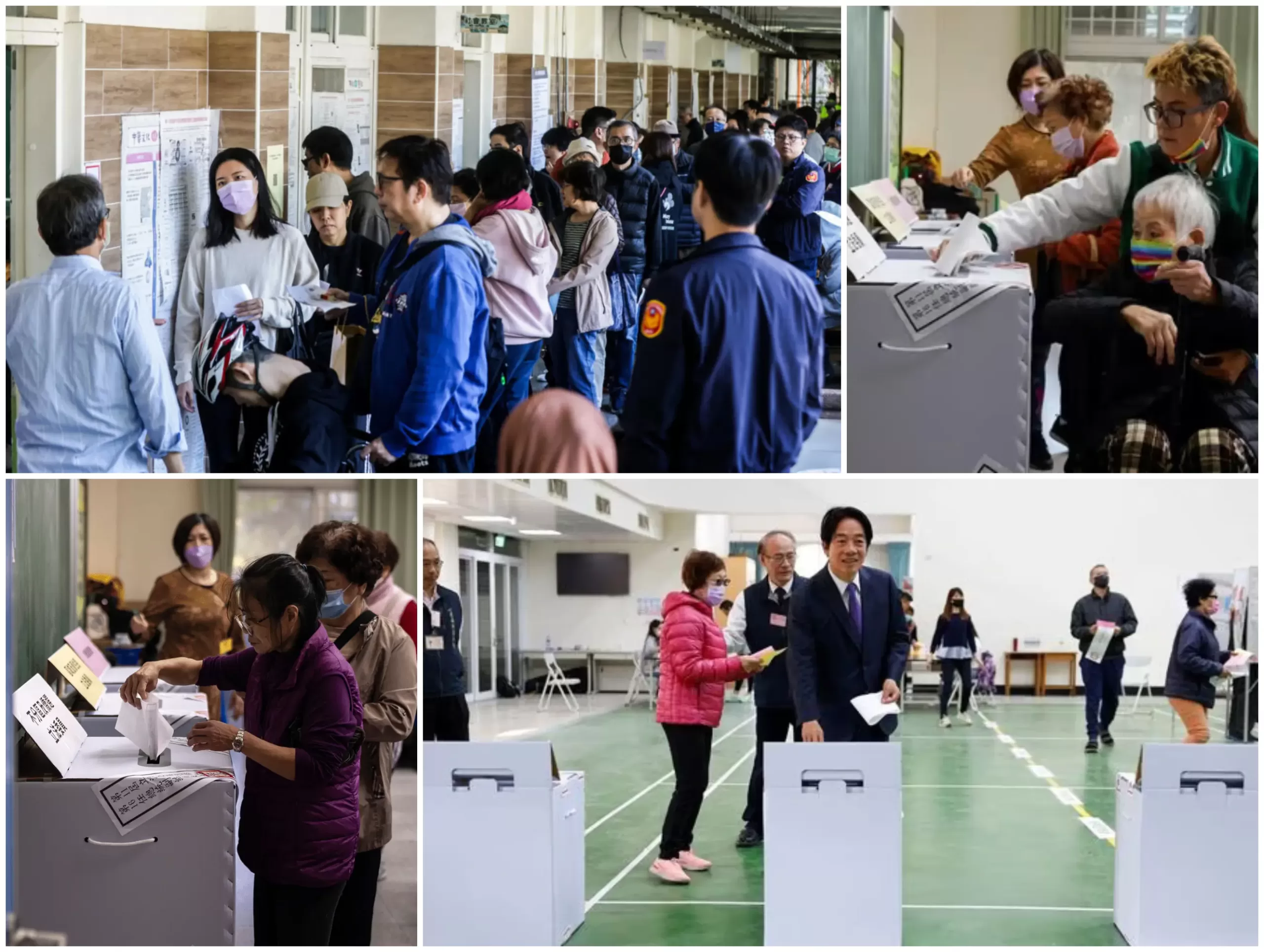
The 2024 Taiwan presidential and parliamentary elections have been at the forefront of global attention, given the heightened tensions between Taiwan and China. As the self-governing island of 23.5 million people prepares to choose its new leaders, the stakes are high for the future of Taiwan’s democracy and its relationship with Beijing.
Taiwan’s democratic journey has been a remarkable success story. Since its first direct presidential election in 1996, the island has made significant strides in shaking off authoritarian rule and martial law. The ruling Democratic Progressive Party (DPP), which champions Taiwan’s separate identity and rejects China’s territorial claims, seeks a third term in office under the leadership of current Vice President Lai Ching-te.
The presidential election features a three-way race among incumbent Vice President Lai Ching-te, representing the DPP; the former mayor of New Taipei City, Hou Yu-ih, from the more conservative Kuomintang (KMT); and Ko Wen-je, a third-party candidate from the Taiwan People’s Party (TPP).
Lai Ching-te, known for his commitment to preserving peace across the Taiwan Strait, aims to continue Taiwan’s push for international recognition as a de facto independent state. Hou Yu-ih, representing the KMT, advocates for closer ties with China and promises better economic relations. Ko Wen-je, the TPP candidate, seeks to navigate a third way, prioritizing both economic engagement with China and the protection of Taiwan’s democracy.
READ ALSO: Taiwan presidential election Details
At the heart of the election is the question of Taiwan’s relationship with China. Beijing claims Taiwan as its territory, despite never having controlled it. Chinese President Xi Jinping has repeatedly emphasized the “historical inevitability” of Taiwan’s unification with the mainland. China’s increasing belligerence toward Taiwan, including military threats and economic pressure, has set the stage for a critical moment in cross-strait relations.
China has openly expressed its preference for a victory by the KMT’s Hou Yu-ih, viewing the DPP as a threat to its interests. In the lead-up to the election, Beijing escalated pressure on Taiwan, imposing sanctions on Taiwanese exports, conducting military displays, and engaging in disinformation campaigns. Taiwan has accused China of interfering in its election process by amplifying talking points favorable to China-friendly candidates.
One of the most exciting things for me at Taiwan's elections is to witness the vote counting where votes are counted transparently in front of voters. Police just announced that polls have closed and counting has started. Hou Yu-ih has an early lead at the voting center I'm at. pic.twitter.com/LsR6SWgh7D
— Roy Ngerng 鄞義林 Khûn Gī-lîm (@royngerng) January 13, 2024
While cross-strait relations remain a crucial factor, many Taiwanese voters are equally concerned about domestic issues. The high cost of living, stagnant wages, and unaffordable housing have taken center stage in the campaign. The TPP, with its pragmatic approach and focus on economic matters, has appealed to young voters seeking change within Taiwan’s political landscape.
The outcome of the election will not only shape Taiwan’s future but also influence its relations with major global powers, particularly the United States and China. A victory for the DPP would signify a continued rejection of Beijing’s strong-arm tactics and a commitment to Taiwan’s de-facto sovereignty. On the other hand, a KMT victory may indicate a desire for de-escalation and closer cross-strait ties.
READ ALSO: Takeaway Iowa debate with DeSantis and Haley
Alongside the presidential race, the parliamentary elections hold equal significance. A majority in the unicameral legislature is crucial for the new president to pass legislation and implement their agenda effectively. The competition between the DPP, KMT, and TPP in local races adds further uncertainty to the outcome and the balance of power in Taiwan’s political landscape.
Taiwanese citizens, aged 20 and over, have shown a strong commitment to exercising their democratic rights. The high voter turnout in this election reflects the value placed on Taiwan’s hard-earned democracy. Despite concerns over China’s influence, many Taiwanese remain steadfast in their support for Taiwan’s separate identity and democratic values.
As the votes are counted and results are announced, the new leaders of Taiwan will face a range of challenges and opportunities. Strengthening the island’s international standing, managing cross-strait relations, and addressing socio-economic concerns will be among their top priorities. The global community, particularly the United States and China, will closely watch the direction Taiwan takes in the coming years.
The 2024 Taiwan election represents a crucial moment for the future of Taiwan’s democracy and its relationship with China. The choice of a new president and parliament will shape Taiwan’s path forward, determining its international standing and its ability to navigate the complex dynamics of cross-strait relations. As the world eagerly awaits the election results, Taiwan’s commitment to democracy remains steadfast, serving as an inspiration to those who believe in the power of self-determination and freedom.
